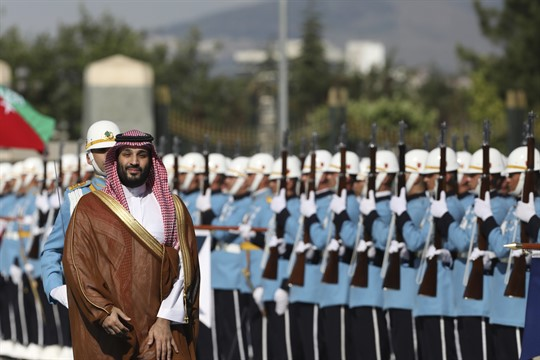
U.S. President Joe Biden’s recently announced trip to the Kingdom of Saudi Arabia has sparked a great deal of comment and no small amount of controversy.
At issue is whether a U.S. president who loudly condemned Riyadh’s human rights record during his 2020 election campaign should be instrumental in helping Saudi Arabia cast off the pariah status it has labored under since its state-sponsored murder of Saudi dissident journalist Jamal Khashoggi in 2018.
Upon taking office, Biden talked about reorienting U.S.-Saudi relations to put greater emphasis on human rights, and he has refused to meet with the kingdom’s de facto ruler, Crown Prince Mohammed bin Salman, known as MBS, who U.S. intelligence services have determined personally ordered Khashoggi’s killing.
However, a nuanced U.S. approach would recognize that Saudi Arabia is already well on its way to regaining its active role in regional affairs. Moreover, as the world’s second-largest oil producer, the Persian Gulf’s dominant strategic power, an influential player in the Middle East and a touchstone for the world’s Muslims as the custodian of the mosques at Mecca and Medina, Saudi Arabia remains of vital importance to U.S. foreign policy.
